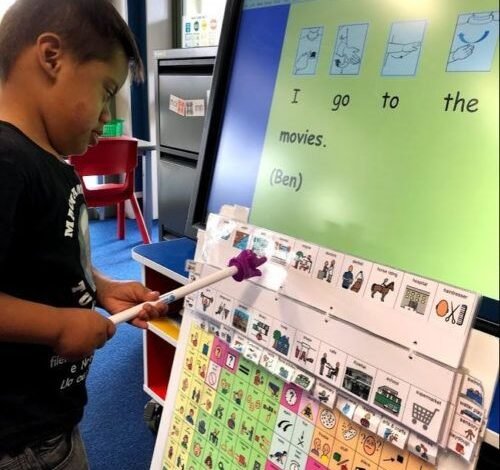Special Education Teacher: Role, Responsibilities, and Career Path
Special Education Teacher: Role, Responsibilities, and Career Path

ntroduction to the Importance of Special Education Teachers
Special education teachers are the heart of a compassionate and inclusive education system. They work tirelessly to ensure that children with diverse learning needs and abilities receive the support and attention they deserve. Whether it’s a child with autism, ADHD, or physical disabilities, special education teachers craft tailored strategies to ensure every child can thrive in an educational setting.
But being a special education teacher is not just a job—it’s a calling. It requires empathy, resilience, and the ability to adapt to unique challenges. This blog explores the multifaceted role of special education teachers, the qualifications needed, the challenges they face, and how they hold the key to brighter futures for students with special needs.
The Role of a Special Education Teacher in the Education System
At the core of their job, special education teachers work to bridge gaps in learning, communication, and social interaction for students with special needs. Here are key parts of their role:
- Creating Individualized Education Plans (IEPs): IEPs outline personalized goals, teaching strategies, and accommodations for each student. This ensures learning is tailored to their strengths and challenges.
- Advocating for Students: Whether in a meeting with administrators or collaborating with general education teachers, special education teachers are constant advocates for their students’ needs and rights.
- Teaching Foundational and Life Skills: Beyond academics, they equip students with essential social, emotional, and life skills to help them succeed in everyday situations.
- Collaborating with Parents: A strong partnership with families is crucial—teachers share progress updates, offer strategies for home learning, and support families in navigating education systems.
- Fostering Inclusion: They work to create safe and welcoming environments where students feel valued, encouraging peers and educators to celebrate differences.
Special education teachers are not just educators; they are mentors and support systems, playing pivotal roles in their students’ lives.
Qualifications and Training Required to Become a Special Education Teacher
Becoming a special education teacher requires a combination of academic preparation, hands-on experience, and a passion for making a difference. Below is a breakdown of the key qualifications and training steps:
1. Obtain a Bachelor’s Degree
A degree in special education or a related field (like psychology or child development) is typically required. Coursework usually covers learning disabilities, behavior management, and teaching methods for diverse learners.
2. Get a Teaching License
Most states require educators to obtain a teaching license, which involves passing exams that demonstrate your understanding of subject knowledge and teaching pedagogy.
3. Complete a Special Education Credential or Certification
Many regions require additional certification, providing training in areas such as:
- IEP development and implementation
- Assistive technologies
- Behavior intervention strategies.
4. Advance with a Master’s Degree (Optional)
Pursuing an advanced degree can open doors to leadership roles, higher pay, and specialized fields like working with students with severe disabilities.
5. Gain Field Experience
Teachers-in-training often complete student-teaching internships where they work hands-on in special education classrooms under the guidance of experienced mentors.
Challenges Faced by Special Education Teachers
Though rewarding, the career comes with its fair share of challenges.
- Time-Intensive Responsibilities: Creating personalized lesson plans, writing reports, and conducting IEP meetings can consume significant time outside classroom hours.
- Managing Emotional Fatigue: Balancing the complexities of student behavior and emotional needs can sometimes lead to burnout.
- Resource Constraints: Limited access to funding, specialized materials, or adequate classroom support can add extra pressure.
- Behavioral Management: Dealing with challenging behaviors or crises requires patience and skill.
Despite these challenges, special education teachers continuously show unwavering dedication to their students’ success, making their work all the more inspiring.
Strategies for Success in Special Education Teaching
To overcome these challenges, successful special education teachers rely on a variety of strategies.
- Build Strong Relationships: Trust is key—taking time to understand your students helps establish communication and mutual respect.
- Practice Flexibility: Every day presents unique challenges, so adaptability is crucial to navigating unexpected situations.
- Use Data-Driven Approaches: Regularly assess progress and adjust teaching methods based on measurable outcomes.
- Lean on a Support Network: Collaborate with colleagues, counselors, and parents to share insights and resources.
- Continue Professional Development: Learning new teaching techniques and staying updated on educational policies ensures teachers remain effective in their roles.
Technology in Special Education Classrooms
Technology has revolutionized how special education teachers support their students. From communication tools to adaptive learning platforms, here are some advancements transforming classrooms:
- Communication Devices: Augmentative and Alternative Communication (AAC) devices help nonverbal students interact more effectively.
- Assistive Software: Programs like voice-to-text apps and screen readers empower students with physical or learning disabilities.
- Learning Platforms: Tools like Google Classroom, Seesaw, and Edmodo provide accessible and customizable ways to support learning at diverse levels.
- Interactive Whiteboards and Tablets: These tools cater to tactile, visual, and auditory learners, making concepts easier to grasp.
Technology reduces barriers, enhances engagement, and opens new avenues for personalized learning.
The Future of Special Education Teaching
The role of special education teachers is more important than ever as classrooms become increasingly inclusive. Emerging trends indicate:
- Greater Inclusion Efforts: More schools are adopting inclusive practices, integrating students with special needs into general classrooms with proper supports.
- Advances in AI: Artificial intelligence can analyze student progress, helping teachers tailor their approaches even further.
- Focus on Teacher Well-Being: Schools are recognizing the importance of supporting educators with mental health resources and manageable workloads.
- Policy Improvement: Government initiatives are increasing funding and training opportunities for special education programs.
The evolving landscape of education ensures that special education teachers will continue to play vital roles while being better supported in their endeavors.
How You Can Make a Difference as a Special Education Teacher
If you’ve been considering a career in special education teaching, now is the perfect time to take the leap. Few professions offer the ability to directly impact lives in such a profound and meaningful way.
Pursue the necessary qualifications, connect with experienced educators, and explore opportunities to advocate for inclusive learning. Empowering the future generation begins with educators who believe in every child’s potential.
If you’re ready to make a difference but feel unsure of where to begin, reach out to local teacher education programs or explore online resources to learn how to get started. The world of special education teaching is waiting—you have the power to change lives.



